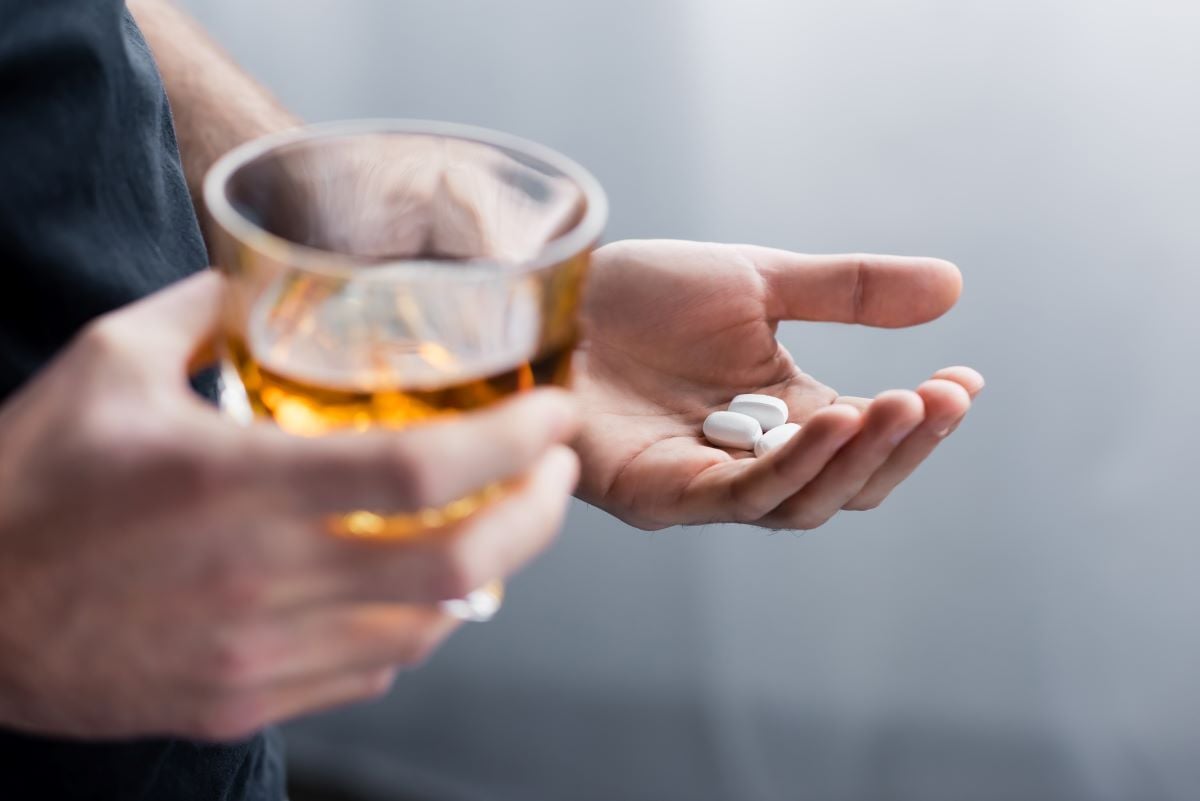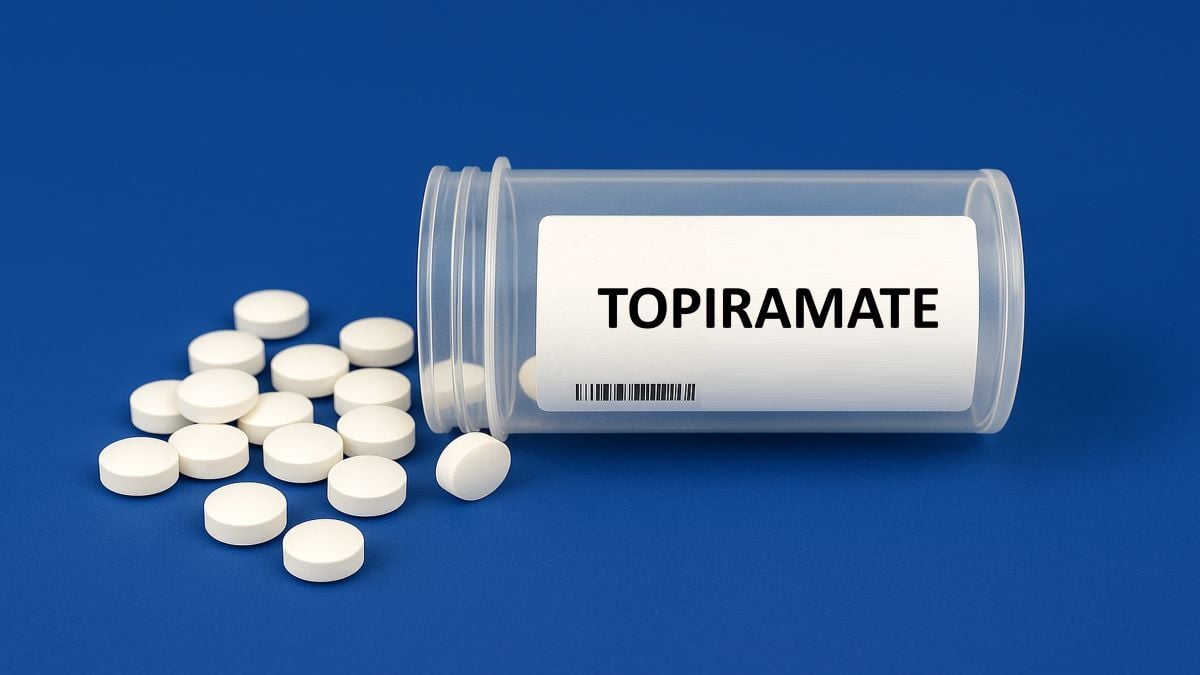Mixing alcohol with any medication is usually a red flag, but when it comes to topiramate, the risks—and potential benefits—make the conversation even more important. Topiramate is a medication that was originally developed to treat seizures and migraines, and has also gained attention in recent years for its off-label use in treating alcohol use disorder (AUD). But that doesn’t mean it’s a magic fix, or that it comes without complications. Understanding how these two substances interact is crucial for your safety, health, and long-term healing. Let’s try to answer some commonly asked questions, like, “can you drink on Topamax?”, and “can you use topiramate for alcohol use disorder?”.
Topiramate and Alcohol
Topamax and alcohol both affect the brain—but in very different ways. Alcohol is a central nervous system depressant, which means it slows down brain activity. Topiramate, on the other hand, works to stabilize overactive neurons and can actually dull some of the effects alcohol has on the brain’s reward system.
When taken together, though, the results can be unpredictable. For some people, topiramate can reduce the pleasurable effects of alcohol, making drinking feel less rewarding. That’s part of why it’s sometimes used in treatment; it may help curb cravings and reduce the urge to drink. But at the same time, mixing the two can also increase certain side effects like dizziness, confusion, drowsiness, and difficulty concentrating. It may even impair motor skills more than either substance would on its own, raising the risk of accidents or injuries.
Another important point to remember is that alcohol can interfere with how well Topiramate works, especially if it’s being used for seizure prevention or migraine control. So while topiramate may help with alcohol dependence for some people, it’s not a free pass to drink while on the medication. The combination needs to be carefully monitored by a healthcare provider.
What is Topiramate?

Topiramate, also called Topamax, is a prescription medication which was originally developed to treat epilepsy. It helps calm excessive nerve activity in the brain, which is why it’s effective in preventing seizures. Over time, doctors also found it to be useful for treating migraines and, more recently, for managing binge eating disorder and even aiding in weight loss when combined with other medications.
But where it gets especially interesting—and relevant—is in its off-label use for alcohol use disorder. Some studies have shown that topiramate can help reduce cravings, decrease the amount of alcohol people drink, and even support long-term abstinence. Many people are now using Topamax for alcohol cravings successfully.
Side Effects and Risks of Mixing Topiramate with Alcohol
Like any medication, topiramate comes with a list of potential side effects—and those risks can become even more serious when alcohol is thrown into the mix.
Common side effects of topiramate on its own include things like fatigue, dizziness, trouble concentrating, and tingling in the hands or feet. Some people also report mood changes, memory problems, or difficulty finding words—often described as “brain fog.” These effects can be frustrating, especially when they impact your day-to-day functioning.
Now add alcohol into the equation, and things can get a lot more complicated. Topiramate ‘s interacts with alcohol amplifies effects like impaired coordination, slows reaction time, and can cause distorted thinking. There's also an increased risk of serious side effects like confusion, extreme drowsiness, and even loss of consciousness in some cases. For anyone taking topiramate for seizures or migraines, alcohol can make those conditions worse, potentially triggering what the medication is meant to prevent.
On the mental health side, topiramate can sometimes cause depression or anxiety, and alcohol is known to worsen both. That combo may raise the risk of emotional instability or even suicidal thoughts in vulnerable individuals. That’s why doctors usually recommend avoiding alcohol altogether while on topiramate—especially if it’s being used as part of a treatment plan for alcohol use disorder.
How Long After Taking Topiramate Can I Drink Alcohol (and Vice Versa)?

There’s no official “safe window” that's been universally agreed on, but here’s what we do know: because both alcohol and topiramate affect your brain and nervous system, taking them too close together can increase the risk of side effects like dizziness, drowsiness, and impaired thinking. If you’ve recently had a drink, it’s best to wait several hours—and ideally, until the alcohol is fully out of your system—before taking topiramate. That usually means waiting at least 8–12 hours, depending on how much you drank, your metabolism, and other personal factors.
On the flip side, if you’ve already taken your daily dose of topiramate and are thinking about drinking, it’s not a good idea to mix the two at all. Alcohol can not only intensify side effects but may also interfere with how well topiramate works, especially if you’re using it to treat alcohol dependence, seizures, or migraines.
Bottom line: It’s always safest to avoid drinking while taking topiramate. If you’ve already had a drink or taken your medication and aren’t sure what to do next, reach out to your doctor or pharmacist for guidance tailored to your situation.
Getting Help for Alcohol Use Disorder
Alcohol use disorder (AUD) is more than just drinking too much—it’s a chronic condition that can impact every aspect of life, from physical health to relationships, employment, and mental health.
The good news? Recovery is possible, and there are more resources than ever to help you get there.
Treatment for AUD often includes a combination of medical support, therapy, peer support groups, and sometimes medications like topiramate to help reduce cravings and make sobriety more manageable. But no matter what the approach looks like, the most important step is getting started.
At Avenues Recovery Center, we understand that every recovery journey is personal. Our programs are designed to meet you where you are, offering individualized care that supports your physical, emotional, and spiritual healing. Whether you’re just beginning to think about treatment or ready to take the next step, we’re here to walk with you—every step of the way.
You don’t have to do this alone. Reach out to Avenues Recovery Center today and take the first step toward a life of freedom, clarity, and healing.



